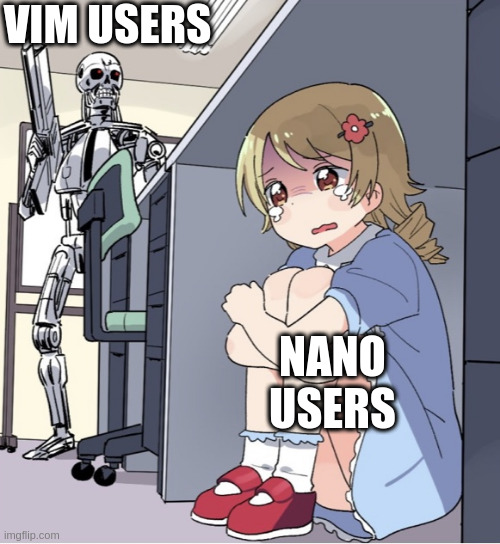this post was submitted on 02 Sep 2024
794 points (93.4% liked)
Linux
48684 readers
387 users here now
From Wikipedia, the free encyclopedia
Linux is a family of open source Unix-like operating systems based on the Linux kernel, an operating system kernel first released on September 17, 1991 by Linus Torvalds. Linux is typically packaged in a Linux distribution (or distro for short).
Distributions include the Linux kernel and supporting system software and libraries, many of which are provided by the GNU Project. Many Linux distributions use the word "Linux" in their name, but the Free Software Foundation uses the name GNU/Linux to emphasize the importance of GNU software, causing some controversy.
Rules
- Posts must be relevant to operating systems running the Linux kernel. GNU/Linux or otherwise.
- No misinformation
- No NSFW content
- No hate speech, bigotry, etc
Related Communities
Community icon by Alpár-Etele Méder, licensed under CC BY 3.0
founded 5 years ago
MODERATORS
you are viewing a single comment's thread
view the rest of the comments
view the rest of the comments

Honestly, roll back to previous release for production and use best IDE your developers are used to on their local machines, test the fix in a non production environment then release to prod. When is editing business critical scripts in production really needed?
It was a joke to make the point that vim can be the easiest tool to use if you are trying to do a complex task.
I’m a bit slow on the uptake there haha. I started with vi and moved over to nano at some point and never looked back. I can refactor code in production with the best of them. There’s still some tricks I’ve seen done in vi that amazes me that I haven’t tried to figure out in nano, but for the most part it’s fairly easy to use to do nearly anything in. Even supports color for supported files, YAML, etc.